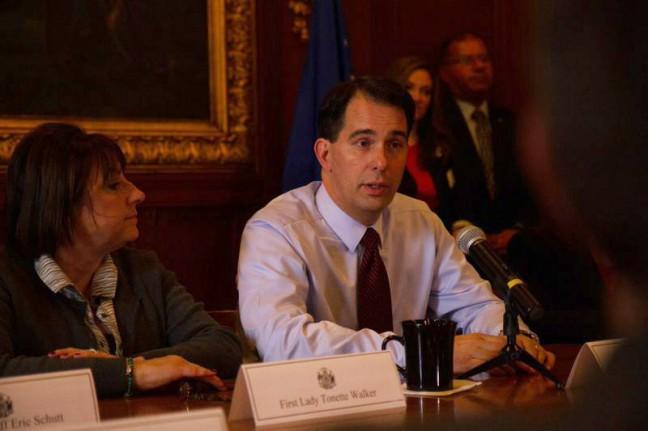As if he’s determined to force the gap between the rich and the poor to widen even further, Gov. Walker has promised to require “a drug test for those requesting unemployment and able-bodied, working age adults requesting food stamps from the state,” according to a statement on his website. Assembly Speaker Robin Vos, R-Rochester, also said it’s a top priority for the upcoming legislative session. This comes despite proof that these drug-testing-for-benefits schemes do not work, so one can only infer that Walker, and the supporters of his proposal, believe that welfare recipients are likely to be lazy citizens scamming the system to feed their drug habits.
These programs have been touted by conservative politicians as a money-saver for their states. The logic apparently is that there are so many welfare and food stamp recipients on drugs, and that if we tested and withheld benefits from drug users, we would save thousands of dollars in state funds. Proponents also state that the screenings would deter drug use. However, states that have implemented these programs have not seen these speculated benefits.
First off, there is no compelling interest for these tests. Arizona was one of the first states to implement a drug testing scheme in 2009, but after three years and 87,000 screenings, there had only been one applicant who failed the drug test. Florida’s brief stint with drug testing welfare applicants barred 2.6 percent of those tested from receiving benefits. The money spent implementing the tests, $45,780, was higher than the dollar amount of the benefits withheld from barred applicants. The money spent on drug testing could be put toward better avenues of government than a dead end, failure of a policy.
Not only do these programs make little economic sense, but they have had a rocky history in the courts. Michigan tried to become the first state to implement across-the-board drug testing for welfare benefits in 2000, but the law was found to violate the Fourth Amendment protection against unreasonable search and seizure. The only way Florida, Arizona and other states were able to implement their programs was through a rewording of the legislative language. However, Florida’s law was eventually struck down, and now states implement a survey system to select which state aid recipients to test as a precaution against avoid judicial hurdles.
The real problem with these programs are that they are border on inhumane. This starts with the opinion that the criminal justice system should punish the vice that is drug use and addiction. Walker’s promise, in its most basic understanding, claims the best way to make people realize they have a problem is to deprive them of their livelihood and starve them out.
So despite a plethora of proof showcasing how terrible of a policy drug testing benefit applicants is, the Walker administration has promised to pursue it. With the evidence now presented, the only rational conclusion is that the governor and his allies in the state Legislature are trying to score political points on the backs of people’s misconceptions about the poor. Our leaders should know better, and this proposal is nothing short of inhumanity. The proposal to withhold food and utility benefits from those who are battling drug addiction is basically Walker saying, “Let the hunger games begin.”
Nichalous Pogorelec ([email protected]) is a sophomore studying sociology.














